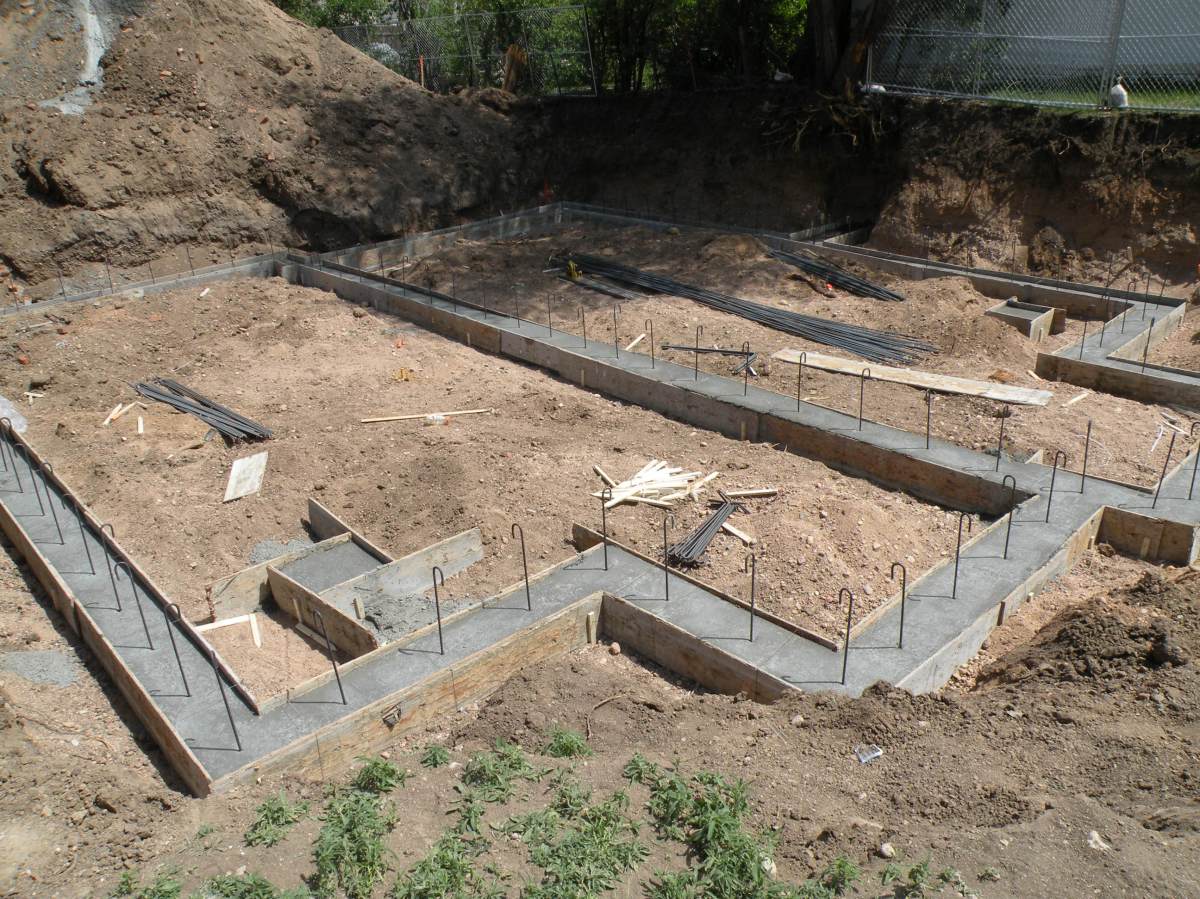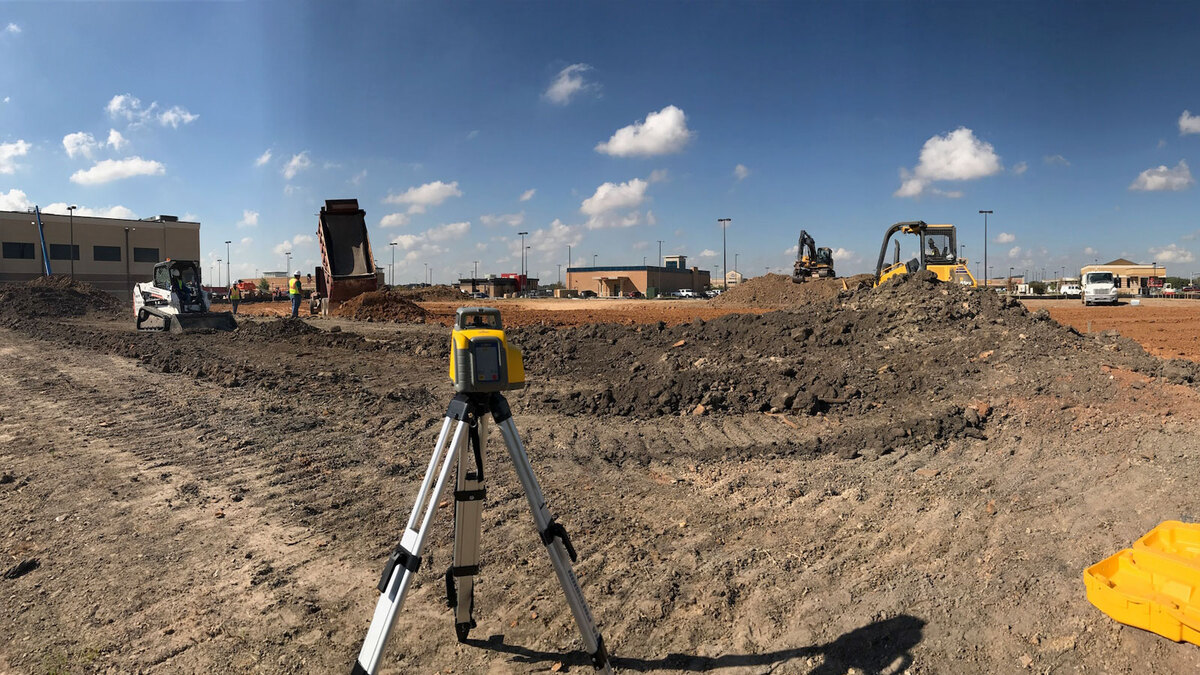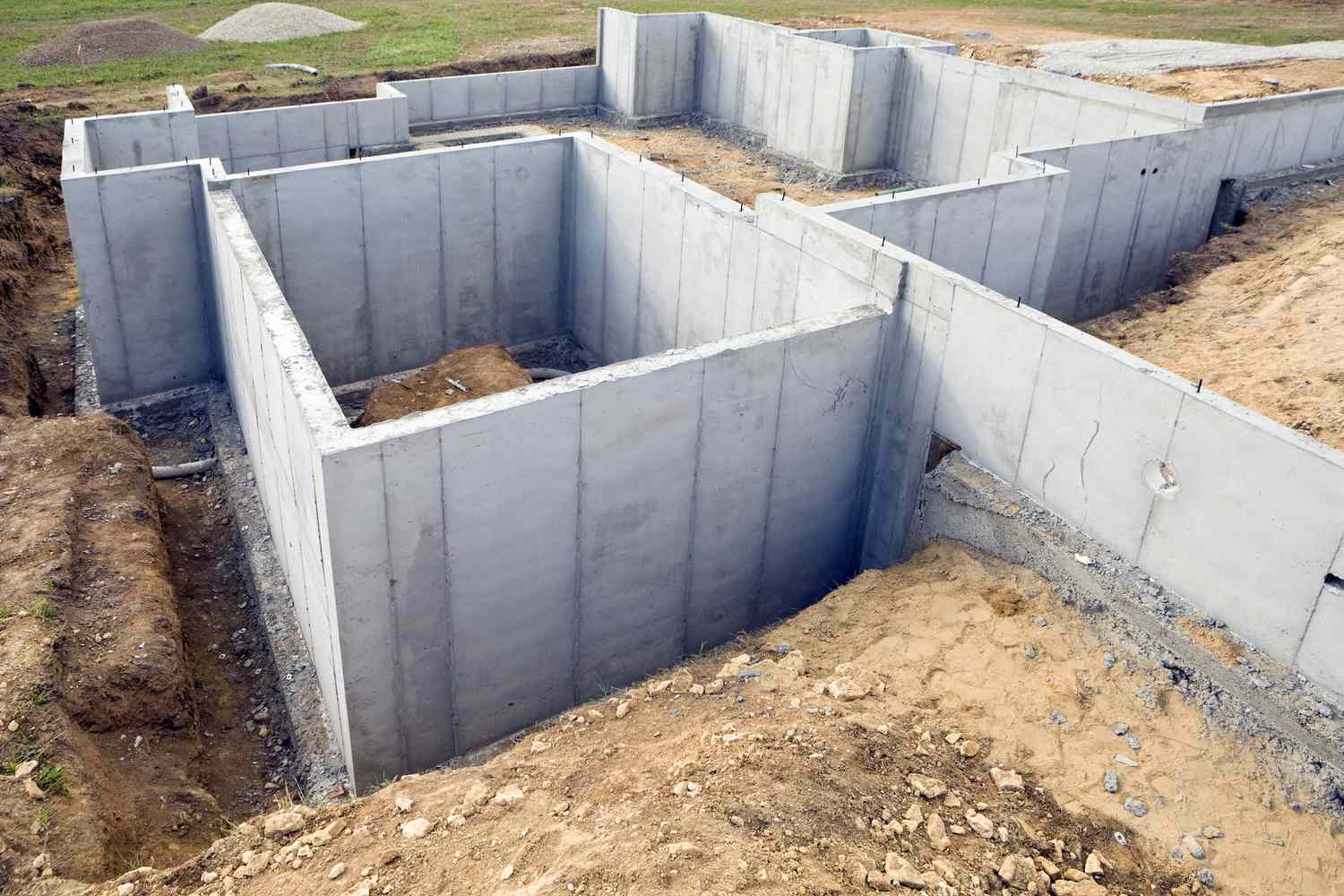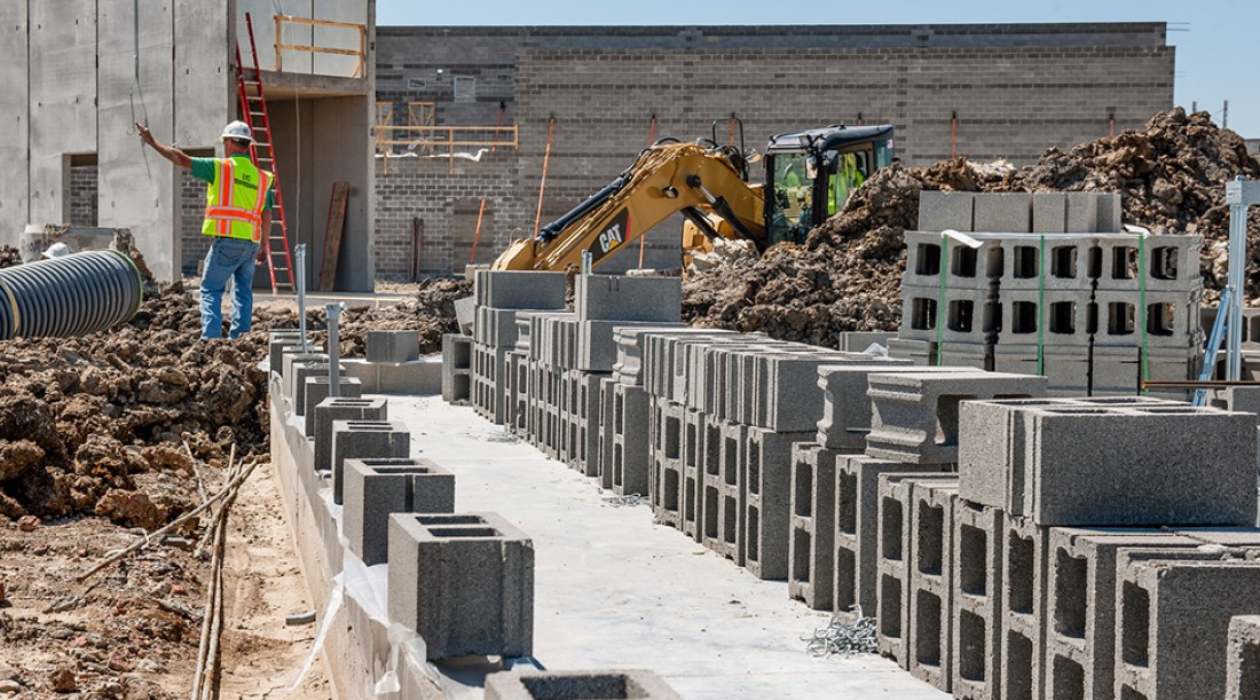Home>diy>Building & Construction>What Is A Quantity Surveyor In Construction?


Building & Construction
What Is A Quantity Surveyor In Construction?
Modified: March 6, 2024
Learn what a quantity surveyor does in the construction industry and how they contribute to the success of building-construction projects.
(Many of the links in this article redirect to a specific reviewed product. Your purchase of these products through affiliate links helps to generate commission for Storables.com, at no extra cost. Learn more)
Introduction
Construction projects are complex endeavors that require careful planning, organization, and financial management. One crucial role in the construction industry is that of a Quantity Surveyor. Quantity Surveyors play a fundamental role in ensuring the successful execution of construction projects by managing costs, budgets, and contracts. In this article, we will explore what a Quantity Surveyor is, their responsibilities, skills required, and the importance of their role in the construction industry.
A Quantity Surveyor, often referred to as a QS, is a construction professional responsible for managing all financial aspects of a construction project. They are experts in cost estimation and control, contract management, and procurement. Quantity Surveyors work closely with architects, engineers, contractors, and clients to oversee the financial management of a project from inception to completion.
The main responsibility of a Quantity Surveyor is to accurately estimate the costs of a project and ensure that it is completed within budget. They prepare detailed cost estimates by analyzing construction plans and specifications, taking into account materials, labor, equipment, and other project expenses. Quantity Surveyors are also responsible for identifying potential cost-saving measures and suggesting value engineering options to clients.
Additionally, Quantity Surveyors play a crucial role in contract administration. They prepare and review construction contracts, ensuring that all parties involved meet their contractual obligations. They also handle the tendering process, evaluate bids from subcontractors and suppliers, and negotiate contracts to secure the best possible prices and terms. Throughout the project, Quantity Surveyors monitor and control costs, preparing regular financial reports to keep stakeholders informed of the project’s financial status.
To excel in their role, Quantity Surveyors must possess a diverse set of skills and qualifications. Strong analytical and mathematical skills are essential for accurate cost estimation and budget management. Attention to detail is crucial, as they must carefully review contracts, invoices, and financial documents. Excellent communication skills are also necessary, as Quantity Surveyors regularly interact with various stakeholders, including clients, contractors, and suppliers. Proficiency in software tools such as building estimation software and project management software is also advantageous in streamlining processes and improving efficiency.
Key Takeaways:
- Quantity Surveyors are financial experts in construction, ensuring projects stay on budget and meet quality standards. They estimate costs, manage contracts, and play a crucial role in cost control and planning.
- The future of Quantity Surveying is exciting, with advancements in technology, sustainability, and global projects. Quantity Surveyors will continue to be essential in delivering successful, cost-effective, and sustainable construction projects.
Read more: How Do Quantity Surveyors Use BIM?
Definition of a Quantity Surveyor
A Quantity Surveyor is a highly skilled professional in the construction industry who specializes in the financial and contractual aspects of construction projects. Also known as a QS, a Quantity Surveyor ensures that construction projects are completed within budget and adhering to the agreed-upon specifications and quality standards. They play a vital role in managing costs, contracts, procurement, and providing expert advice on financial matters throughout the project lifecycle.
Quantity Surveyors are involved in all stages of the construction project, from initial planning and design to project completion. They work closely with architects, engineers, contractors, and clients to understand project requirements, develop cost estimates, and monitor and manage costs throughout the entire process.
The primary responsibility of a Quantity Surveyor is to accurately estimate and forecast the costs involved in a construction project. This includes estimating the quantities of materials, labor, equipment, and other resources required. They utilize their expertise, industry knowledge, and historical data to ensure that cost estimates are as accurate as possible. These estimates are crucial in helping clients make informed decisions and secure the necessary funding for the project.
In addition to cost estimation, Quantity Surveyors are also responsible for contract administration and procurement. They are skilled negotiators who prepare, review, and manage contracts between the client, contractors, and suppliers. They ensure that contracts are fair, legally binding, and include all necessary documentation and clauses to protect the interests of all parties involved.
Quantity Surveyors also play a vital role in cost control throughout the construction project. By closely monitoring and assessing progress, they ensure that costs are kept within the approved budget. They identify any variations or potential cost overruns and work with the project team to find cost-effective solutions without compromising quality. This requires their expertise in value engineering, which involves suggesting alternatives or modifications that can achieve the same project objectives at a lower cost.
Furthermore, Quantity Surveyors are involved in the financial management and reporting of construction projects. They track and analyze the actual costs incurred, comparing them to the estimated costs. This data is used to prepare regular financial reports for stakeholders, including the client, project managers, and other decision-makers. These reports provide a clear overview of the project’s financial health, helping stakeholders make informed decisions regarding the project’s progress and financial viability.
Overall, Quantity Surveyors play a critical role in ensuring the successful and cost-effective completion of construction projects. Their expertise in cost estimation, contract management, and financial control helps in mitigating risks, managing budgets, and delivering projects that meet the desired quality standards.
Responsibilities of a Quantity Surveyor
A Quantity Surveyor has a variety of responsibilities within the construction industry. Their role encompasses financial management, contract administration, procurement, and providing expert advice on cost control and planning. Let’s delve into some of the key responsibilities of a Quantity Surveyor:
- Cost Estimation: One of the primary responsibilities of a Quantity Surveyor is to accurately estimate the costs involved in a construction project. This includes estimating the quantities of materials, labor, equipment, and other resources required. They utilize their expertise and industry knowledge to ensure the cost estimates are as accurate as possible. These estimates form the basis for budgeting and cost planning throughout the project.
- Cost Control: Quantity Surveyors play a crucial role in monitoring and managing costs throughout the project lifecycle. They are responsible for tracking and assessing project costs, comparing them to the estimated costs, and identifying any variations or potential cost overruns. By closely monitoring the expenses, they ensure that costs are kept within the approved budget. This involves collaborating with the project team to find cost-effective solutions without compromising quality.
- Contract Administration: Quantity Surveyors are involved in the administration of construction contracts. They prepare, review, and manage contracts between the client, contractors, and suppliers. This includes ensuring that contracts are fair, legally binding, and include all necessary documentation and clauses to protect the interests of all parties involved. They also handle the tendering process, evaluate bids, and negotiate contracts to secure favorable prices and terms.
- Procurement: Quantity Surveyors are responsible for the procurement of materials, equipment, and services required for the construction project. They work closely with suppliers and subcontractors to source the necessary resources at competitive prices. This includes understanding the project’s requirements, obtaining multiple quotations, conducting cost analyses, and ensuring procurement activities align with the project’s budget and timeline.
- Cost Reporting: Quantity Surveyors prepare regular financial reports to keep stakeholders informed about the project’s financial status. They track and analyze the actual costs incurred, comparing them to the estimated costs. These reports provide an overview of the project’s financial health, offering insights into areas of potential savings or cost overruns. They enable stakeholders to make informed decisions regarding project progress and financial management.
- Value Engineering: Quantity Surveyors are involved in value engineering, which entails suggesting alternatives or modifications that can achieve the same project objectives at a lower cost. They identify cost-saving opportunities and propose value engineering solutions to clients, considering factors such as cost, quality, durability, and sustainability. Value engineering allows clients to optimize their investments and achieve the best possible outcomes within their budget constraints.
By fulfilling these responsibilities, Quantity Surveyors contribute to the successful execution of construction projects. They are essential in managing costs, contracts, and procurement, ensuring that projects are completed within budget, and providing expert advice on cost control and planning.
Skills and Qualifications Required
Being a Quantity Surveyor requires a diverse set of skills and qualifications, as they play a critical role in managing costs, contracts, and financial aspects of construction projects. Here are some of the key skills and qualifications required for a successful career in Quantity Surveying:
- Technical Knowledge: Quantity Surveyors need to have a strong understanding of construction methods, materials, and processes. They should possess technical knowledge of building regulations, quantity takeoff methodologies, and cost estimation techniques. Familiarity with building codes, industry standards, and construction measurements is crucial for accurate cost analysis.
- Numerical and Analytical Skills: Strong numerical and analytical skills are essential for Quantity Surveyors as their role heavily involves working with numbers, budgets, and financial data. They must have the ability to interpret complex data, perform accurate calculations, and analyze cost implications. Attention to detail is crucial to identify potential cost savings and avoid errors that can lead to budget overruns.
- Communication and Negotiation: Effective communication skills are vital for Quantity Surveyors as they interact with various stakeholders, including clients, contractors, suppliers, and project teams. They need to be able to articulate cost-related information clearly and concisely. Additionally, strong negotiation skills are crucial in contract administration and procurement, allowing Quantity Surveyors to secure favorable prices and terms.
- Contract and Legal Knowledge: A solid understanding of construction contracts, contract law, and relevant legislation is essential for Quantity Surveyors. They need to have the ability to review, draft, and manage contracts, ensuring compliance with legal requirements. Knowledge of contract administration and dispute resolution processes helps in resolving any contractual issues that may arise during the course of the project.
- Technology Proficiency: Quantity Surveyors should be proficient in utilizing modern technology tools and software related to their profession. This includes building estimation software, project management software, and financial management tools. Proficiency in computer-aided design (CAD) software can also be advantageous in visualizing project plans and coordinating with design teams.
- Project Management: Excellent project management skills are beneficial for Quantity Surveyors, as they are responsible for managing costs, schedules, and resources. They should have the ability to prioritize tasks, coordinate with multiple stakeholders, and adapt to changes that may occur during the project. Effective time management and organizational skills ensure that projects are completed on time and within budget.
- Educational Qualifications: Quantity Surveyors typically hold a bachelor’s degree in Quantity Surveying or a related field. Some may also pursue postgraduate qualifications or professional certifications in Quantity Surveying or Construction Management. These qualifications provide a solid foundation of knowledge and demonstrate a commitment to professional development.
Overall, a successful Quantity Surveyor possesses a combination of technical expertise, analytical skills, effective communication, and negotiation abilities. They should stay updated with industry trends and advancements, embrace new technology tools, and continuously develop their professional skills to excel in this demanding and crucial role.
Importance of Quantity Surveyors in Construction
Quantity Surveyors hold great importance in the construction industry due to their specialized knowledge and expertise in managing costs, contracts, and financial aspects of construction projects. Here are some key reasons why Quantity Surveyors are essential:
- Cost Control and Budget Management: Quantity Surveyors play a vital role in controlling costs and managing budgets throughout the project lifecycle. Their accurate cost estimation and monitoring help keep construction costs within the approved budget. By reviewing project expenses and identifying potential cost-saving measures, they help achieve maximum value for every dollar spent.
- Contract Administration: Quantity Surveyors handle the administration of construction contracts, ensuring that all parties involved fulfill their contractual obligations. They review and prepare contracts, negotiate terms, and resolve any contractual disputes that may arise. Their expertise protects the interests of clients, contractors, and suppliers, fostering fair and transparent relationships.
- Procurement and Supplier Management: Quantity Surveyors are responsible for procuring materials, equipment, and services required for construction projects. By working closely with suppliers and subcontractors, they ensure the timely delivery of resources at competitive prices. Their knowledge of market trends and supplier capabilities helps in making informed procurement decisions.
- Risk Mitigation: Quantity Surveyors play a crucial role in identifying and mitigating potential risks associated with construction projects. By conducting thorough cost analysis, they assess the financial implications of project changes, variations, and unforeseen circumstances. Their proactive approach helps minimize the financial impact of risks on the project’s overall success.
- Value Engineering: Quantity Surveyors possess expertise in value engineering, which involves suggesting cost-effective alternatives or modifications without compromising on quality. By assessing project objectives and analyzing different options, they help clients optimize their investment and achieve the desired outcome within their budget constraints.
- Financial Reporting and Stakeholder Management: Quantity Surveyors prepare regular financial reports to keep stakeholders informed about the project’s financial status. These reports provide a clear overview of costs incurred, cost variances, and overall project expenditure. By ensuring transparency and effective communication, they help stakeholders make informed decisions and maintain trust and confidence in the project.
- Project Sustainability: Quantity Surveyors contribute to the sustainable development of construction projects. By considering environmental factors and life cycle costs, they promote the use of sustainable materials and energy-efficient solutions. Their expertise in cost analysis helps identify long-term savings and environmentally-friendly practices.
Overall, Quantity Surveyors provide crucial financial expertise, ensuring the successful completion of construction projects within budget and meeting the desired quality standards. Their involvement helps control costs, manage contracts, mitigate risks, and optimize resources, contributing to the overall success and profitability of construction projects.
Read also: 14 Amazing Surveyor Plumb Bob for 2025
Available Career Paths for Quantity Surveyors
A career in Quantity Surveying offers various opportunities for professional growth and specialization within the construction industry. Quantity Surveyors have a wide range of career paths available to them, depending on their interests and expertise. Here are some of the potential career paths for Quantity Surveyors:
- Quantity Surveyor: The most common career path for a Quantity Surveyor is to work as a practitioner in the construction industry. In this role, Quantity Surveyors are responsible for managing costs, contracts, and procurement activities for construction projects. They work closely with the project team, clients, contractors, and suppliers to ensure the smooth financial management of the projects from start to finish.
- Cost Manager or Cost Consultant: Quantity Surveyors can specialize as Cost Managers or Cost Consultants. In this role, they work closely with clients to provide expert advice on cost planning, budgeting, and cost control strategies. They analyze project costs, provide cost forecasts, and advise clients on cost-effective measures during the project lifecycle. They may also assist in feasibility studies and cost assessments for potential construction projects.
- Contract Administrator: Some Quantity Surveyors choose to specialize as Contract Administrators. In this role, they focus on managing construction contracts, ensuring compliance with contractual terms and conditions, and resolving any disputes that may arise. They review and negotiate contractual terms, monitor contract performance, and handle any claims or variations that may affect the project’s financial aspects.
- Project Manager: Quantity Surveyors have the opportunity to transition into project management roles. With their strong financial acumen and knowledge of construction processes, Quantity Surveyors are well-suited to coordinate and manage all aspects of construction projects. They oversee project timelines, budgets, resources, and stakeholders, ensuring that projects are delivered on time, within budget, and to the desired quality standards.
- Estimator: Quantity Surveyors can specialize as Estimators, focusing on the accurate estimation of project costs and quantities. Estimators work closely with architects, engineers, and clients to analyze project requirements, review construction plans, and provide detailed cost estimates. Their expertise in cost analysis and quantity takeoff methodologies is crucial in determining the financial viability of construction projects.
- Research and Development: Some Quantity Surveyors choose to pursue careers in research and development within the construction industry. They engage in academic or industry research, contributing to advancements in cost estimation techniques, contract management practices, or sustainable construction methods. Research and development roles allow Quantity Surveyors to make significant contributions to the industry’s knowledge and innovation.
- Specialized Areas: Quantity Surveyors also have the opportunity to specialize in niche areas within the construction industry. This could include areas such as infrastructure projects, real estate development, rehabilitation and renovation projects, or specific sectors like healthcare, education, or hospitality. Specializing in these areas allows Quantity Surveyors to develop in-depth knowledge and expertise in specific project types or industries.
The career paths for Quantity Surveyors are diverse and offer opportunities for professional growth, specialization, and advancement within the construction industry. By leveraging their skills, knowledge, and experience, Quantity Surveyors can excel in various roles and make significant contributions to the success of construction projects.
Comparison of Quantity Surveyors with Other Construction Professionals
In the construction industry, various professionals play critical roles in ensuring the successful completion of projects. While Quantity Surveyors have distinct responsibilities related to cost management and financial aspects, they often collaborate with other professionals to deliver construction projects. Here’s a comparison of Quantity Surveyors with other construction professionals:
Architects:
Architects are responsible for designing buildings, ensuring functionality, aesthetics, and adherence to building codes and regulations. While architects focus on the overall design and concept development, Quantity Surveyors complement their work by providing cost analysis and budget management. Quantity Surveyors help architects identify cost-effective design solutions and ensure that project costs align with design objectives.
Engineers:
Engineers are essential in the construction industry, responsible for structural, mechanical, electrical, and other technical aspects of a project. Quantity Surveyors work closely with engineers by providing cost estimates and analysis, helping them better understand the financial implications of design decisions. Additionally, Quantity Surveyors collaborate with engineers during the tendering process when evaluating bids and selecting subcontractors or suppliers.
Read more: What Is Construction
Project Managers:
Project Managers oversee and coordinate all aspects of construction projects, ensuring they are completed on time, within budget, and meeting quality standards. While Project Managers focus on overall project planning, execution, and coordination, Quantity Surveyors bring their expertise in cost control and contract management to the team. Quantity Surveyors assist Project Managers in budgeting, cost monitoring, procurement, and addressing any financial risks or disputes that may arise during the project.
Construction Managers:
Construction Managers are responsible for supervising and managing the construction site and the activities of subcontractors and workers. While Construction Managers focus on on-site operations and coordination, Quantity Surveyors provide crucial support in managing project costs and contracts. Quantity Surveyors help Construction Managers by preparing cost estimates, monitoring expenses, and verifying contractor payments, ensuring that the project stays within budget and contract terms.
Contractors:
Contractors are responsible for executing the construction work as per the project plans and specifications. Quantity Surveyors collaborate with contractors to ensure that the work is executed within the approved budget and contract terms. They assess contractor payments, evaluate variations or change orders, and resolve any commercial issues that may arise. Quantity Surveyors help contractors by providing accurate cost information and ensuring that the project maintains financial viability.
Financial Managers:
Financial Managers are responsible for the overall financial management of a construction company or organization. While Financial Managers focus on broader financial strategies and performance, Quantity Surveyors bring their specialized cost management expertise to the financial management team. Quantity Surveyors assist Financial Managers by providing accurate cost data, analyzing project profitability, and contributing to financial planning and forecasting.
While Quantity Surveyors have their unique focus on cost management, contracts, and financial aspects, collaboration and synergy with other construction professionals are crucial for project success. The combined efforts of architects, engineers, project managers, construction managers, contractors, and financial managers, along with the expertise of Quantity Surveyors, create a well-rounded team that efficiently delivers construction projects.
Read more: What Is Drainage In Construction
The Future of Quantity Surveying in the Construction Industry
The construction industry is constantly evolving, driven by advancements in technology, changing client demands, and a growing emphasis on sustainability and cost-efficiency. In this ever-changing landscape, the role of Quantity Surveyors is expected to evolve and adapt to meet the industry’s future needs. Here are some key factors that will shape the future of Quantity Surveying:
Technological Advancements:
Technology is revolutionizing the construction industry, and Quantity Surveyors must embrace and leverage these advancements. Building Information Modeling (BIM) software, drones, and 3D scanning are already transforming the way Quantity Surveyors work. These technologies enable more accurate cost estimation, improved project visualization, and enhanced collaboration among stakeholders. In the future, Quantity Surveyors will need to become proficient in emerging technologies to remain competitive and provide value-added services.
Data Analytics and Artificial Intelligence:
As construction projects generate vast amounts of data, Quantity Surveyors can harness data analytics and artificial intelligence (AI) to gain insights, optimize costs, and improve decision-making. AI-powered tools can automate repetitive tasks, analyze historical project data, and predict cost trends. Quantity Surveyors who are adept at using data analytics and AI will be able to generate more accurate cost estimates, identify cost-saving opportunities, and improve project outcomes.
Sustainability and Green Building:
The focus on sustainability and green building practices will continue to grow in the construction industry. Quantity Surveyors will play a crucial role in implementing sustainable measures, such as life cycle costing, energy-efficient design analysis, and green materials evaluation. They will need to stay updated with evolving sustainability standards and certifications, advising clients on eco-friendly practices and assessing the financial viability of sustainable construction projects.
Read more: What Is An AHA In Construction
Collaborative and Integrated Project Delivery:
The future of construction will see an increased emphasis on collaborative and integrated project delivery methods. Quantity Surveyors will need to work closely with multidisciplinary teams, including architects, engineers, contractors, and project managers, right from the project’s inception. Collaborative technologies and integrated project management software will enable Quantity Surveyors to enhance communication, streamline processes, and provide real-time cost analysis throughout the project lifecycle.
Globalization and International Projects:
The construction industry is becoming more globalized, with projects being executed across borders. Quantity Surveyors with international experience and knowledge of different regulatory frameworks will be in high demand. Understanding local market conditions, adapting to varying cost structures, and managing international contracts and currencies will be essential skills for Quantity Surveyors working on international projects.
Emphasis on Risk Management:
Risk management will be a key focus for Quantity Surveyors in the future. They will need to proactively identify and assess potential risks, both financial and non-financial, and provide effective mitigation strategies. Quantity Surveyors will play a crucial role in evaluating the financial viability of projects, conducting risk analyses, and advising clients on risk management measures to ensure project success.
The future of Quantity Surveying in the construction industry is exciting and holds tremendous potential. By embracing technology, leveraging data analytics, supporting sustainable practices, collaborating effectively, and managing risks, Quantity Surveyors can continue to play a vital role in delivering successful, cost-effective, and sustainable construction projects.
Conclusion
Quantity Surveyors are integral to the construction industry, with their expertise in managing costs, contracts, and financial aspects of projects. Their role is essential for ensuring successful project execution, cost control, and adherence to budgets. Throughout this article, we have explored the definition of a Quantity Surveyor, their responsibilities, required skills and qualifications, and their importance in the construction industry.
Quantity Surveyors are entrusted with the crucial task of accurately estimating costs, preparing contracts, and managing procurement. They play a vital role in monitoring and controlling costs throughout the project lifecycle while providing valuable insights to clients, contractors, and project teams. Their expertise in value engineering and risk management helps in optimizing resources and mitigating potential project risks.
The future of Quantity Surveying looks promising, with technological advancements, data analytics, sustainability practices, and collaborative project delivery methods shaping the industry. Quantity Surveyors need to stay updated with emerging technologies, embrace data-driven decision-making, promote sustainable construction practices, and foster effective collaboration to meet the evolving needs of the industry.
In conclusion, Quantity Surveyors are indispensable professionals in the construction industry. Their knowledge, skills, and contributions are crucial for achieving cost-effective, successful, and sustainable construction projects. By continuously adapting to industry trends, harnessing technological advancements, and embracing new ways of working, Quantity Surveyors will continue to play a pivotal role in the construction industry for years to come.
Frequently Asked Questions about What Is A Quantity Surveyor In Construction?
Was this page helpful?
At Storables.com, we guarantee accurate and reliable information. Our content, validated by Expert Board Contributors, is crafted following stringent Editorial Policies. We're committed to providing you with well-researched, expert-backed insights for all your informational needs.












0 thoughts on “What Is A Quantity Surveyor In Construction?”